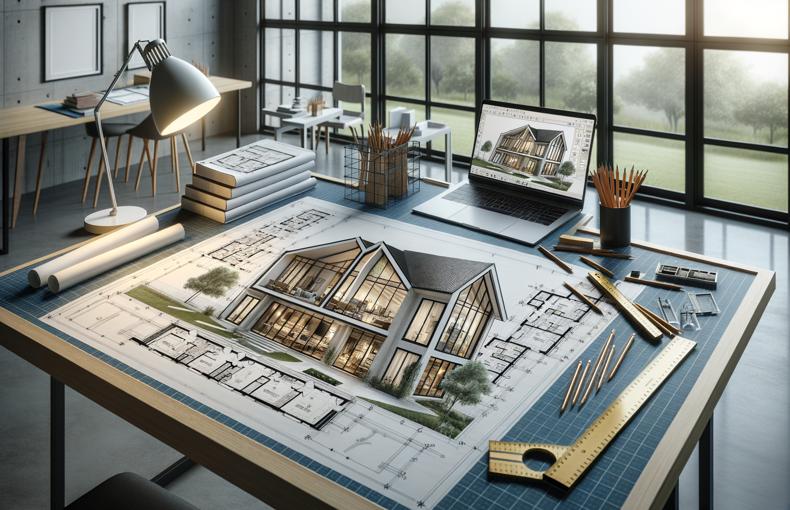Navigating Zoning Laws: Tips for Your Custom House Plan
Building your dream home is an exciting journey, but it comes with its share of challenges. One of the most critical aspects to consider is navigating zoning laws. These regulations, set by local governments, dictate how land can be used in different areas and can significantly impact your custom house plan. Understanding and adhering to zoning laws can save you time, money, and potential legal issues down the road. Here are some essential tips to help you navigate zoning laws for your custom house plan.
1. Understand the Basics of Zoning Laws
Zoning laws are local regulations that control the use of land and the types of structures that can be built on it. They are designed to ensure that land use is compatible with the community's development plans. Common zoning categories include residential, commercial, industrial, and agricultural. Each category has specific rules regarding building size, height, placement, and usage.
2. Research Local Zoning Codes
Before you start designing your custom home, research the local zoning codes of the area where you plan to build. Visit your local zoning office or check their website for detailed information. Understanding these codes will give you a clear idea of what is permissible and help you avoid costly redesigns.
3. Consult with Professionals
Hiring professionals such as architects, builders, and land use attorneys can be invaluable. They have experience dealing with zoning laws and can provide expert advice on how to design your home to comply with local regulations. They can also assist in obtaining the necessary permits and approvals.
4. Consider the Lot Size and Shape
Zoning laws often include restrictions on the size and shape of the lot on which you can build. For example, there may be minimum lot size requirements or restrictions on the percentage of the lot that can be covered by the building. Ensure your lot meets these criteria before finalizing your purchase.
5. Be Aware of Setback Requirements
Setback requirements dictate how far your home must be from property lines, streets, and other structures. These requirements can affect your house's design and placement on the lot. Make sure to incorporate these setbacks into your plans to avoid any violations.
6. Look for Variances and Exceptions
In some cases, you may be able to obtain a variance or exception to certain zoning laws. A variance allows you to deviate from specific regulations due to unique circumstances. To apply for a variance, you'll typically need to demonstrate that the strict application of the zoning laws would cause you undue hardship.
7. Understand Permitting Processes
Once your design complies with zoning laws, you'll need to obtain various permits before construction can begin. These permits may include building permits, environmental permits, and occupancy permits. Understanding the permitting process and requirements will help you avoid delays and ensure a smooth construction process.
8. Stay Updated on Zoning Changes
Zoning laws can change over time due to new city plans, community feedback, or other factors. Stay informed about any changes in your area's zoning regulations to ensure your custom house plan remains compliant. Subscribe to local government newsletters or regularly check their websites for updates.
9. Engage with the Community
Engaging with your community can provide valuable insights and support for your project. Attend local zoning board meetings, join neighborhood associations, and communicate with your neighbors about your plans. Building positive relationships can help you gain community support and avoid potential conflicts.
10. Plan for the Future
When designing your custom home, think long-term. Consider how future changes in zoning laws might affect your property and its potential uses. Planning for future growth and flexibility can enhance your home's value and usability over time.
Conclusion
Navigating zoning laws can be complex, but with careful research and planning, you can successfully design and build your custom home. By understanding local regulations, consulting with professionals, and staying informed about zoning changes, you can ensure your dream home complies with all necessary laws and regulations. Happy building!
Implementing these tips will not only help you navigate the complexities of zoning laws but also ensure your custom home project is a success from start to finish. Subscribe to our blog for more expert tips.











